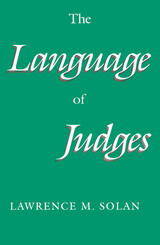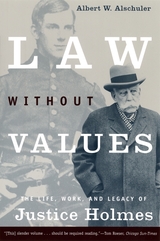5 start with L start with L

"One of the most satisfyingly devious of the Judge Dee novels, with unusual historical richness in its portrayal of the China of the T'ang dynasty."-—New York Times Book Review
"Even Judge Dee is baffled by Robert van Gulik's new mysteries in The Lacquer Screen. Disguised as a petty crook, he spends a couple of precarious days in the headquarters of the underworld, hobnobbing with the robber king. Dee's lively thieving friends furnish some vital clues to this strange and fascinating jigsaw."-—The Spectator
"So scrupulously in the classic Chinese manner yet so nicely equipped with everything to satisfy the modern reader."-—New York Times
Robert Van Gulik (1910-67) was a Dutch diplomat and an authority on Chinese history and culture. He drew his plots from the whole body of Chinese literature, especially from the popular detective novels that first appeared in the seventeenth century.

Solan uses a wealth of examples to illustrate the way linguistics enters the process of judicial decision making: a death penalty case that the Supreme Court decided by analyzing the use of adjectives in a jury instruction; criminal cases whose outcomes depend on the Supreme Court's analysis of the relationship between adverbs and prepositional phrases; and cases focused on the meaning of certain words in the Constitution. Solan finds that judges often describe our use of language poorly because there is no clear relationship between the principles of linguistics and the jurisprudential goals that the judge wishes to promote.
A major contribution to the growing interdisciplinary scholarship on law and its social and cultural context, Solan's lucid, engaging book is equally accessible to linguists, lawyers, philosophers, anthropologists, literary theorists, and political scientists.


This biography illuminates the governor's accomplishments between 1962 and 1970, including the creation of the Hackensack Meadowlands Commission, formation of the county college system, establishment of stringent antipollution laws, design of the public defender system, and the adoption of a New Jersey sales tax, as well as his pivotal role during the Newark riots. As chief justice, Hughes faced difficult issuesùschool funding, low and moderate income housing needs, freedom of speech, and his decision in the rightto-die case involving Karen Ann Quinlan. With a career characterized by liberal activism, Hughes also contributed nationally and internationally, from serving as host of the 1964 Democratic National Convention to monitoring elections in South Vietnam.
John B. Wefing's research includes interviews with prominent politicians and leaders who worked with Hughes at various points in his career. The result is a rich story of a public servant who possessed a true ability to work with members of both political parties and played a significant role in shaping modern New Jersey.

Louis D. Brandeis (1856-1941) played a role in almost every important social and economic movement during his long life: trade unionism, trust busting, progressivism, woman suffrage, scientific management, expansion of civil liberties, hours, wages, and unemployment legislation, Wilson's New Freedom, Roosevelt's New Deal. He invented savings bank life insurance and the preferential union shop, became known as the "People's Attorney," and altered American jurisprudence as a lawyer and Supreme Court judge. Brandeis led American Zionism from 1914 through 1921 and again from 1930 until his death. He earned over two million dollars practicing law between 1878 and 1916 and used his wealth to foster public causes. He was adviser to leaders from Robert La Follette to Frances Perkins, William McAdoo to Franklin Roosevelt, Woodrow Wilson to Harry Truman.
This lively account of Brandeis's life and legacy, based on ten years of research in sources not available to previous biographers, reveals much that is new and gives fuller context to personal and historical events. The most significant revelations have to do with his intellectual development. That Brandeis opposed political and economic "bigness" and excessive concentration of wealth is well known. What was not known prior to Strum's research is how far Brandeis carried his beliefs, becoming committed to the goals of worker participation--the sharing of profits and decision making by workers in "manageable"-sized firms. So it happened that the man who was sometimes dismissed as an outmoded horse-and-buggy liberal championed a cause too radical even for the New Deal braintrusters who were quick to follow his advice in other areas
Strum charts Brandeis's development as a kind of industrial-era Jeffersonian deeply influenced by the classical ideals of Periclean Athens. She shows that this was the source not only of his vision of a democracy based on a human-scaled polis, but also of his sudden emergence, in his late fifties, as the leading American Zionist: he had come to regard Palestine as the locus of a new Athens. And later, on the Supreme Court, this Athenian conception of human potential took justice Brandeis beyond even Justice Holmes in the determined use of judicial power to protect civil liberties and democracy in an industrialized society.
READERS
Browse our collection.
PUBLISHERS
See BiblioVault's publisher services.
STUDENT SERVICES
Files for college accessibility offices.
UChicago Accessibility Resources
home | accessibility | search | about | contact us
BiblioVault ® 2001 - 2024
The University of Chicago Press









